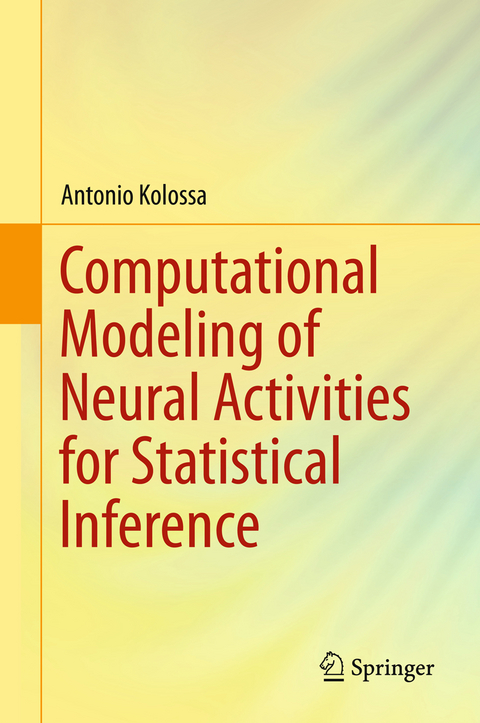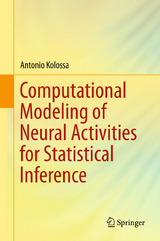Computational Modeling of Neural Activities for Statistical Inference
Springer International Publishing (Verlag)
978-3-319-32284-1 (ISBN)
This authored monograph supplies empirical evidence for the Bayesian brain hypothesis by modeling event-related potentials (ERP) of the human electroencephalogram (EEG) during successive trials in cognitive tasks. The employed observer models are useful to compute probability distributions over observable events and hidden states, depending on which are present in the respective tasks. Bayesian model selection is then used to choose the model which best explains the ERP amplitude fluctuations. Thus, this book constitutes a decisive step towards a better understanding of the neural coding and computing of probabilities following Bayesian rules. The target audience primarily comprises research experts in the field of computational neurosciences, but the book may also be beneficial for graduate students who want to specialize in this field.
Basic Principles of ERP Research, Surprise, and Probability Estimation.- Introduction to Model Estimation and Selection Methods.- A New Theory of Trial-by-Trial P300 Amplitude Fluctuations.- Bayesian Inference and the Urn-Ball Task.- Summary and Outlook.
| Erscheinungsdatum | 08.10.2016 |
|---|---|
| Zusatzinfo | XXIV, 127 p. 42 illus., 20 illus. in color. |
| Verlagsort | Cham |
| Sprache | englisch |
| Maße | 155 x 235 mm |
| Themenwelt | Mathematik / Informatik ► Mathematik ► Angewandte Mathematik |
| Schlagworte | Bayesian observer model • biomedical engineering • Design matrices for model estimation • Digital filtering model • Event-related Potentials • Mathematical Models of Cognitive Processes and Neu • mathematics and statistics • Neural statistical inference • Neurosciences • Physiological, Cellular and Medical Topics • Simulation and modeling |
| ISBN-10 | 3-319-32284-2 / 3319322842 |
| ISBN-13 | 978-3-319-32284-1 / 9783319322841 |
| Zustand | Neuware |
| Haben Sie eine Frage zum Produkt? |
aus dem Bereich




